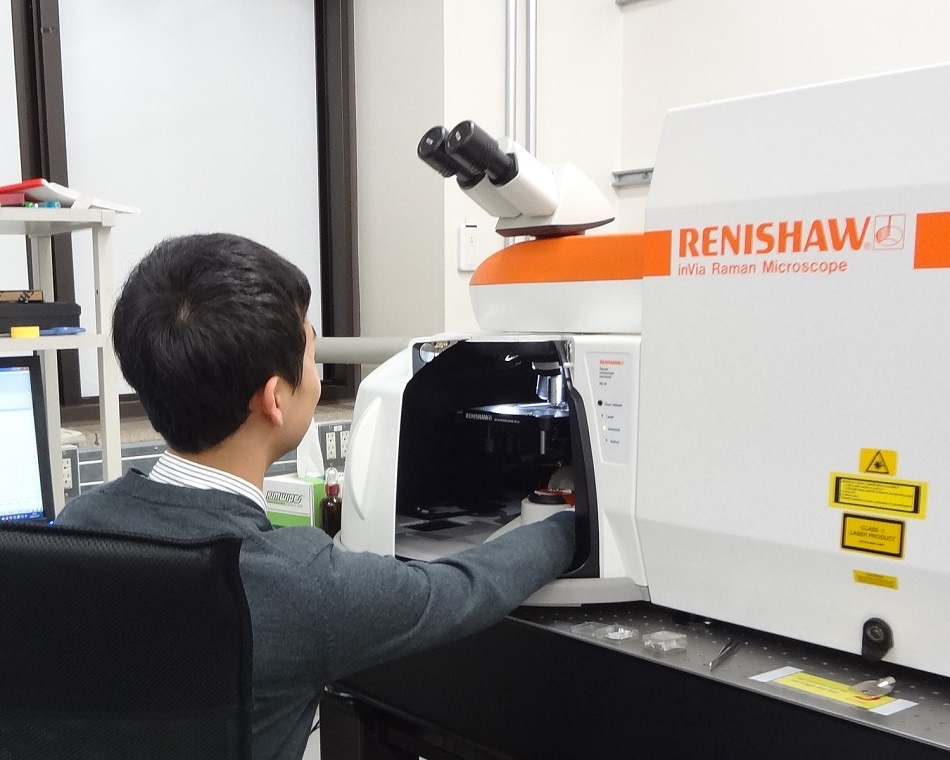
The Mechanical Engineering Department of the University of Tokyo uses a Renishaw inVia confocal Raman microscope to study graphene and other nano-materials in the development of energy related devices such as solar cells.
The University of Tokyo’s Department of Mechanical Engineering was established in 1879, providing education based on four disciplines; mechanics, materials, hydrodynamics and thermodynamics.
Within the Department, the Maruyama-Chiashi Laboratory focuses its research on the synthesis and analysis of carbon nanotubes (CNT), graphene and other nano-materials. They study applications related to the development of energy related devices, such as solar cells. The laboratory uses scanning Raman spectroscopy as an important tool for the investigation of the synthesized materials and their structure.
The Renishaw inVia is one of the most frequently used instruments in our university. Scanning Raman imaging spectroscopy is very useful for observing the structure of CNTs and graphene.
It is one of the most important tools for our research. We find it possible to measure Raman images quickly and stably using inVia. Additionally, we find the software very useful for image analysis.
Dr Shohei Chiashi - Lecturer, University of Tokyo
Dr Chiashi, along with Professor Maruyama and colleagues, recently published two papers where the inVia was used as one of the principle characterisation tools. The first1 reports the Raman characterisation of single layer hexagonal graphene flakes produced from ethanol via chemical vapour deposition. The second2 uses systematic Raman mapping to evaluate single-walled carbon nanotubes of different chirality.
inVia is used throughout the world as an essential tool for researchers investigating the unique properties of CNT and graphene. I am glad to see our growing customer base publishing such excellent research utilising our equipment in this exciting area.
David Reece -Marketing Manager of the spectroscopy group, Renishaw
Please visit here for further details of Renishaw’s inVia confocal Raman microscope.
References
1. X. Chen, P. Zhao, R. Xiang, S. Kim, J. H. Cha, S. Chiashi, S. Maruyama, "Chemical Vapor Deposition Growth of 5 mm Hexagonal Single-Crystal Graphene from Ethanol," Carbon, 94, 810-815 (2015). DOI: 10.1016/j.carbon.2015.07.045.
2. T. Inoue, D. Hasegawa, S. Chiashi, S. Maruyama, "Chirality Analysis of Horizontally Aligned Single-Walled Carbon Nanotubes: Decoupling Populations and Lengths," J. Mater. Chem. A, 3, 15119-15123 (2015). DOI: 10.1039/C5TA02679B.